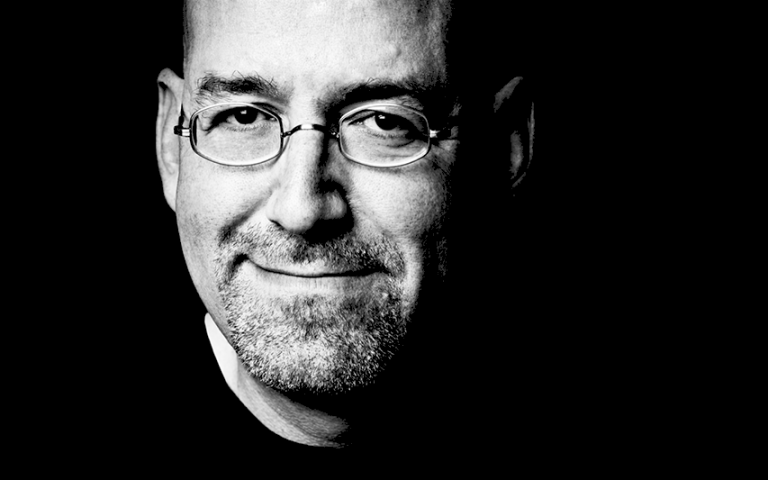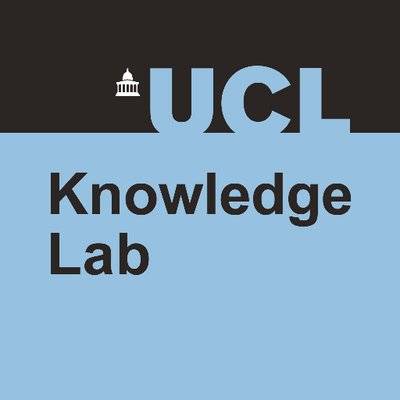David is a PhD candidate carrying out his doctoral studies at a distance while living in the United States. He is researching new technologies to assist autistic adolescents and adults.
 What was your route into a PhD, and what made you choose UCL?
What was your route into a PhD, and what made you choose UCL?

As a mid-career professional practicing my craft in various disciplines (e.g. Amazon best-selling author, GRAMMY producer, .com entrepreneur, music industrialist) I aspire to make new and lasting contributions in the fields of neuroscience and machine learning - specifically to assist autistic adolescents and adults. My wife Suzy and I are parents to an incredibly gifted autistic daughter (Phoebe), who inspires me to research new technologies that may help this heterogeneous and extremely talented community.
UCL’s approach and support of multidisciplinary research was a key factor in my selection criteria. Moreover, my two supervisors (Professor Kaśka Porayska-Pomsta at IOE and Dr Sarah White at the UCL Institute of Cognitive Neuroscience) are rock stars in their respected fields. I am grateful to have the benefit of their guidance in my pursuits. The ability to provision all of this within a proven, successful and online/distance learning environment is a major foundational and appealing characteristic.
Tell us about your field of study. What do you find interesting about it and what inspires you?
Autism research is certainly not wanting. However, studies that target later-life individuals both at work and in higher education institutions - particularly with regard to sensory disturbances, attentional issues and anxiety - often fall off the radar. The preponderance of research is focused on children, genetics/causality, sociality, communication and behaviour.
As a parent, I understand and appreciate this.
“Nonetheless, autism is a lifelong condition. It does not evaporate when your child turns 18 years of age.
Researching potential supports for later life opportunities is what I find most motivating and what gets me up at 4am most mornings (that and the time difference between London and South Florida!)
Most importantly, the UK’s advanced approach to neurodiversity (both in research and in community thought/support) is vastly different from what we experience here in the US. To my way of thinking, I much prefer European discourse and theory embedded in neurodiverse supports; it speaks to a considerably more respectful, ethical and humanistic approach.
Why do a PhD? What motivates you?
I have been a guest lecturer at various universities since 1986. Earning a PhD provides one with more opportunities to give back to the academic community, particularly with a degree from a prestigious organisation like UCL.
As my career pivots toward later-life opportunities, I envision contributing through research and academic-based roles. Pursuing a UCL PhD provides a rigorous framework, both in training, supervision and advanced, forward-thinking environments.
“UCL’s commitment clearly supports research like mine through bespoke, untested and uncommon approaches. This luxury is something not lost on me - it motivates me each and every day.
What interests you outside of your academic study?
Most people are surprised of my other interest outside of academic study; that is, I have a currently active (and longstanding) career in the music, entertainment and professional audio industry as a record producer, engineer and performer/arranger/composer.
What would it surprise people to know about you?
In addition to my full-time research and doctoral training, I am presently in the midst of mixing three albums. I have been blessed to work with many A-list and up-and-coming singer/songwriter/performers over the years, and it continues to be a privilege to serve in these creative/engineering posts whilst pivoting to my love of all things academic and research.
What will your next ventures be career-wise?
Right now, everything is about contribution. Whether writing, lecturing, inventing, researching - as long as the output serves the greater good - then my bucket list will be filled. To the extent that I can help those who have or continue to be marginalised, or worse still, left behind or forgotten, then my objective is made that much clearer. No ego, no self, no problem. Just contribution.
As a US citizen, how do you think the system of learning or researching at UCL differs from that in your home country?
As an international student, I find learning and researching at UCL to be refreshing for a number of reasons:
- From an assessment and developmental planning standpoint, UCL’s adherence to the UK Research Development Framework provide a 360° advantage that isn’t even acknowledged in the States.
- UCL’s Doctoral School provides immense support enabling international (all!) students to work both efficiently and effectively with a tremendous range of opportunities in both self- and required training through IOE’s Research Training Programme and the Centre for Doctoral Education.
- The quality and quantity of administrative support (beyond my supervisors’ influence and encouragement) from departments like the Culture, Communication and Media is second to none! Even though I am not formally enrolled there, I am particularly amazed at how welcomed I have been made by the UCL Institute of Cognitive Neuroscience and in particular, the Developmental Diversity Lab.
“The doctoral programme and distance learning paradigm, in particular, has been most impressive."
You mentioned that you lecture and mentor. What is the most valuable thing you’ve learnt from your students/mentees?
I have always maintained that my students and mentees teach me more than I do them. Whether thinking about how to better onboard nascent graduates who might be unfamiliar with a radical technique or creative technology, to thinking more clearly about how I might efficiently cut to the quick about best practice for field-use - my classroom’s perspective outplays any ego or self-need.
This has unsurprisingly and instinctively carried over when approaching my doctoral research. In many ways, my work as a lecturer and mentor is bound by my favourite phrase and personal modus operandi: “Deeds - Not Words”.
You're very involved in university life outside of your programme...
I have had a most enriching experience - even at a distance - as a UCL Student Trustee, Board of Governance Member, Student Representative for Graduate Researchers Online/At-A-Distance and member of two labs, and author of a UCL Knowledge Lab blog. My involvement has enabled me to build esprit de corps with colleagues from all over the globe, many who I have come to rely on for both support, advice and budding friendships.
I had the privilege of authoring and tutoring an online course entitled Doctoral Graduates in the Knowledge Economy (which took place in the autumn of 2019). In doing so, I attempted to allay many of the concerns of my younger colleagues who worry deeply about life and work post-graduation. With that series winding down, I have begun assisting the UCL Knowledge Lab by helping communicate our regular seminar series of world-class researchers, speakers and presenters.
How have you found returning to the university environment?
It is worth mentioning that prior to enrolling at UCL, my undergraduate degrees were conferred in 1986! In gauging those previous experiences to now, nearly every element of degree learning has changed. The doctoral programme and distance learning paradigm in particular has been most impressive. The investment has been well-worth it, due in large part to UCL’s human capital that impressively supports student learning and research initiatives.
There is a palpable authenticity that transcends the transactional paradigm often associated with the US-based university experience. To me, this is most impressive given UCL’s size and the sheer number of graduate students researching from the four corners of the earth! This has been particularly insightful and valuable.
Is there anything else you would like to add?
It would be an understatement (and a mistake) not to emphasise the following: next to my family, my marriage and the birth of our daughter, my time at IOE is one of the highlights of my life. Gaining admission, enrolling and embarking on my first year of doctoral training and research has exceeded my wildest dreams.
My objective is to now live and work in Bloomsbury in order to scaffold my research and augment my writing and presentations. I have always enjoyed London, and with new colleagues (many of whom have become fast friends), I am most eager to immerse myself and contribute “on the ground” rather than “from a distance”.
Last updated 29 March 2023.
 Close
Close



